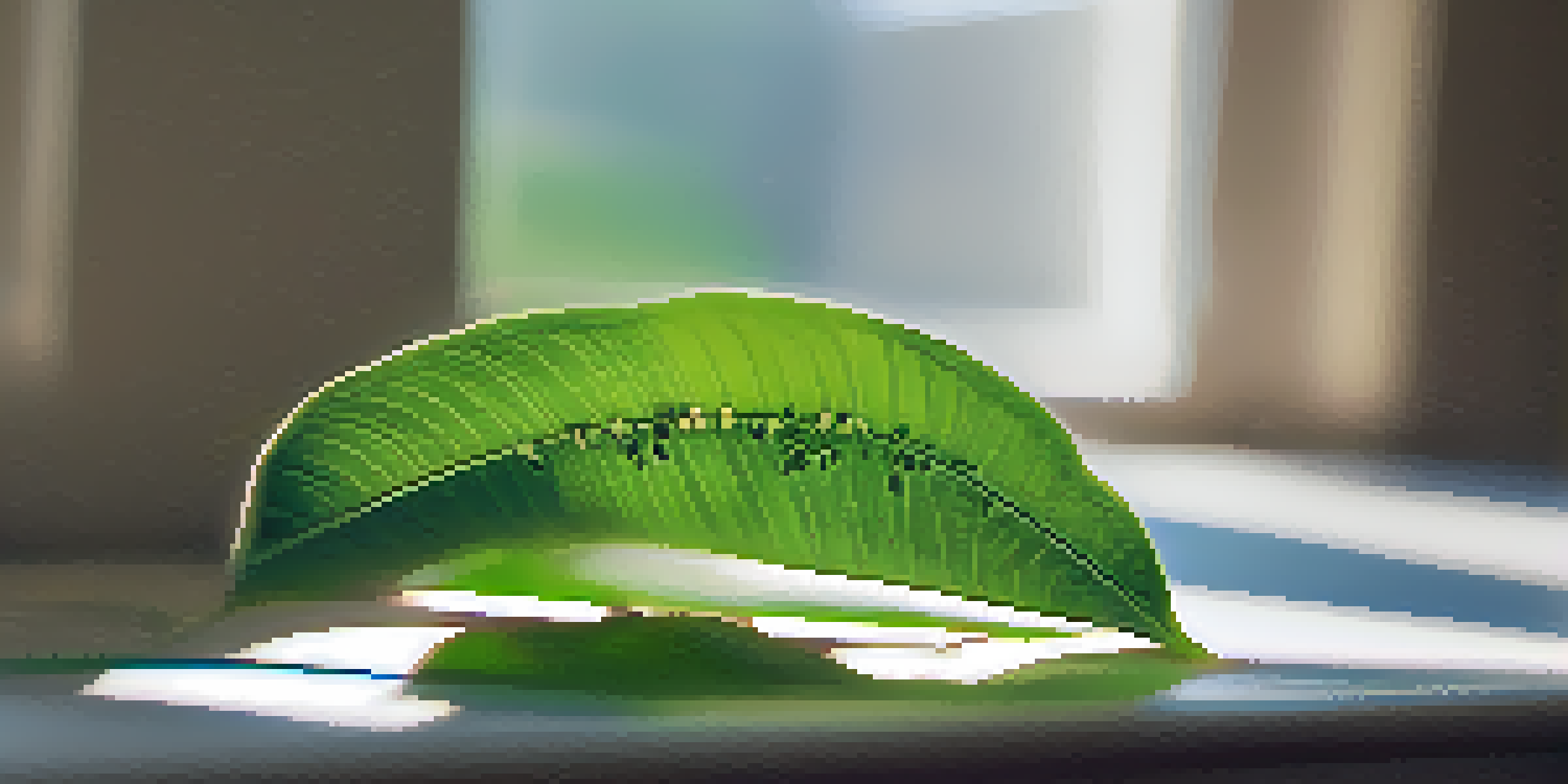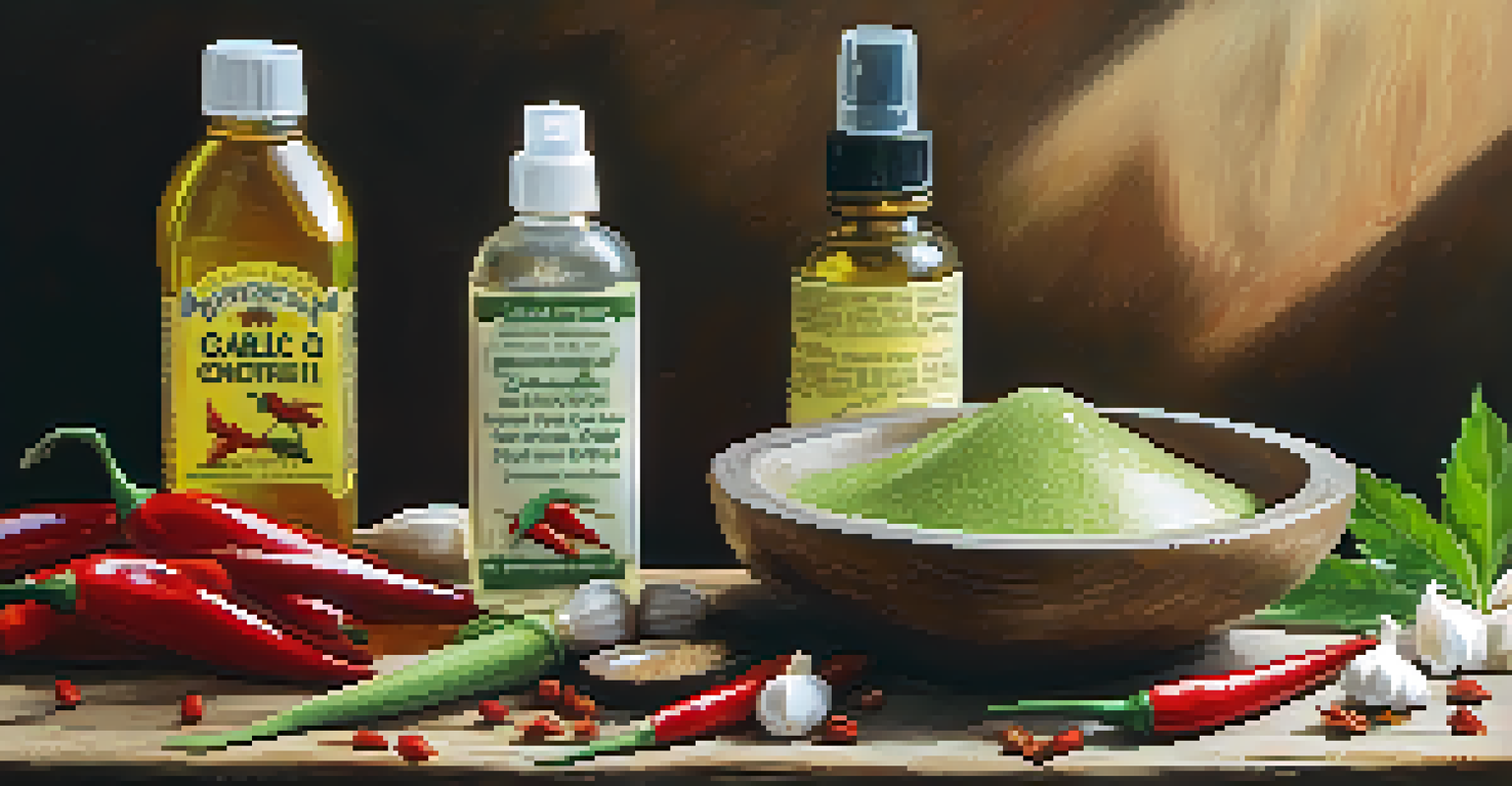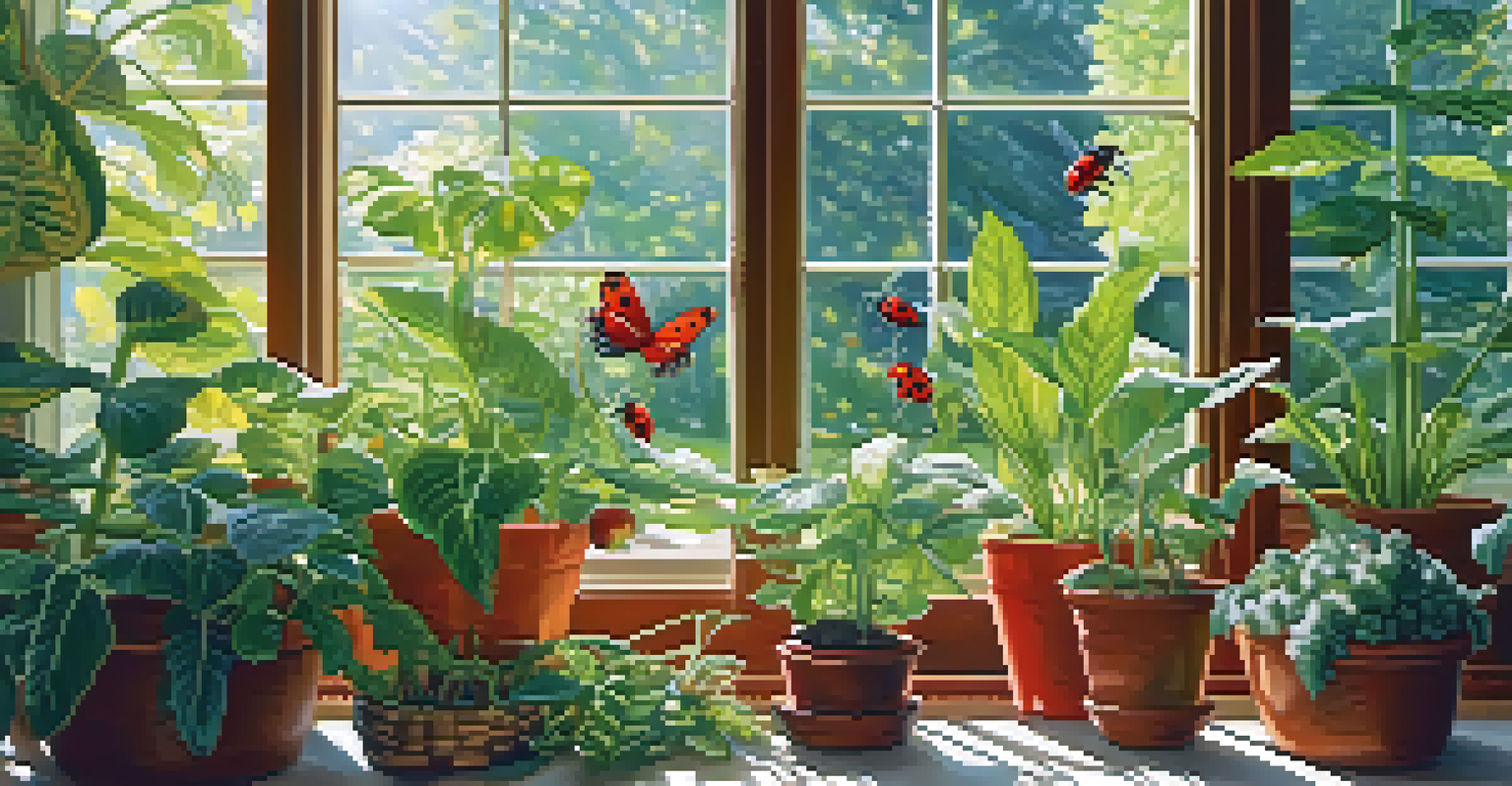How to Deal with Indoor Plant Pests Naturally

Understanding Common Indoor Plant Pests
Indoor plants can be a source of joy, but they often attract pests like aphids, spider mites, and mealybugs. Understanding these common pests is the first step in protecting your green friends. Each pest comes with its own set of problems, so knowing what you're dealing with can help you choose the right natural remedy.
The best way to control pests is to prevent them before they become a problem.
For instance, aphids are tiny, soft-bodied insects that feed on plant sap, causing leaves to curl and yellow. Spider mites, on the other hand, are so small that you might not notice them until you see fine webbing on your plants. Identifying these pests early can save your plants from serious damage.
Take a moment to inspect your plants regularly. A quick glance at the leaves and stems can reveal any unwanted visitors, allowing you to take action before the infestation spreads.
Natural Remedies for Pest Control
When it comes to dealing with indoor plant pests, there are several effective natural remedies you can try. One popular option is neem oil, which is derived from the seeds of the neem tree and works wonders against various pests. Simply mix it with water and spray it on affected areas to disrupt the pests' life cycle.

Another effective remedy is a simple soap solution. Mixing mild liquid soap with water creates a solution that can suffocate soft-bodied insects like aphids and mealybugs. Just be sure to test it on a small area first to ensure your plant can handle it.
Identify Common Plant Pests
Recognizing pests like aphids and spider mites early is crucial to preventing serious damage to your indoor plants.
Garlic and chili pepper sprays are also great options. They can deter pests thanks to their strong scents, which many insects find unpleasant. Just blend these ingredients with water, strain, and spray away!
Encouraging Beneficial Insects
While we often focus on the pests, it’s essential to remember the role of beneficial insects in your indoor garden. Ladybugs and lacewings are fantastic allies in the battle against pests like aphids. They feed on these nuisances, keeping your plants healthier in the process.
Nature is not a place to visit. It is home.
You can encourage these beneficial insects by providing a suitable environment. This includes having a variety of plants that attract them, such as flowering herbs like dill and fennel. They love these nectar-rich plants, and in turn, they help keep your pest population in check.
Consider introducing ladybugs to your indoor plants. You can purchase them online or at garden centers. Just be sure to release them in the evening, as they tend to fly away during the day.
Maintaining Healthy Indoor Plants
One of the best defenses against pests is having healthy plants. A strong, well-nourished plant can better withstand pest attacks. Make sure to provide your indoor plants with the right amount of water, light, and nutrients to keep them thriving.
Regularly clean the leaves of your plants to remove dust and potential eggs laid by pests. A damp cloth can work wonders in keeping your plants clean and healthy. Just be gentle to avoid damaging the leaves.
Use Natural Remedies Effectively
Natural solutions like neem oil and soap sprays can effectively combat indoor plant pests without harmful chemicals.
Additionally, consider rotating your plants or changing their locations occasionally. This can disrupt pest life cycles and prevent infestations from taking hold in one spot.
Using Essential Oils for Pest Prevention
Essential oils aren’t just for aromatherapy; they can also be potent allies in pest control. Oils like peppermint, lavender, and tea tree oil possess natural insect-repelling properties. You can create a simple spray by mixing a few drops of your chosen oil with water.
For example, peppermint oil is especially effective against spiders and ants. Just mix a few drops with water in a spray bottle and apply it to affected areas around your plants. The refreshing scent will keep pests at bay while making your space smell lovely.
Remember to apply these oils sparingly and test them on a small area first. Some plants may be sensitive to certain oils, so it’s always best to play it safe!
Creating a Pest-Resistant Environment
The environment in which your plants live plays a significant role in pest management. Ensuring that your indoor space has good air circulation can help deter pests. Consider placing fans nearby or regularly opening windows to promote airflow.
Keeping your plants grouped according to their needs can also minimize pest problems. For example, plants that thrive in high humidity can be placed together, reducing stress and making them less appealing to pests. Healthy plants are less likely to attract unwanted visitors.
Maintain Plant Health for Prevention
Healthy plants are less susceptible to pests, making proper care, cleaning, and environment management essential.
Lastly, be mindful of the soil you use. Sometimes, pests can come from the soil itself, so using sterile potting mix can help prevent infestations right from the start.
Regular Monitoring and Quick Action
Keeping a close eye on your indoor plants is crucial for early detection of pests. Make it a habit to inspect your plants weekly, looking closely at the leaves, stems, and soil. The sooner you spot an infestation, the easier it will be to manage.
If you notice any signs of pests, take action immediately. Whether it’s applying a natural remedy or removing affected leaves, prompt action can prevent a minor issue from becoming a major problem. Think of it as a quick intervention that saves your plants.

Also, don’t hesitate to reach out to local gardening communities or forums. Other plant lovers often have great advice and personal experiences that can make your pest management efforts even more effective.
Conclusion: Embrace Natural Pest Management
Dealing with indoor plant pests doesn't have to be a daunting task. By employing natural remedies and preventive measures, you can keep your plants healthy and thriving. Embracing these natural methods not only protects your plants but also contributes to a healthier home environment.
Remember, the key is consistency and vigilance. Regular checks, a little cleaning, and the right natural treatments can go a long way. Plus, you’ll feel good knowing you’re taking care of your plants in an eco-friendly way.
So, gear up and take control of your indoor garden! With the right knowledge and approach, you can create a pest-free sanctuary for your beloved plants.